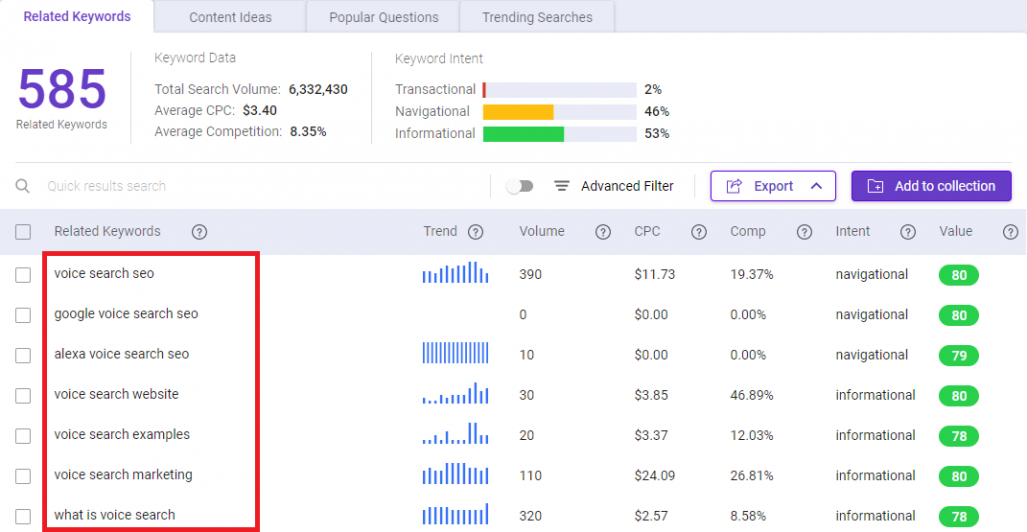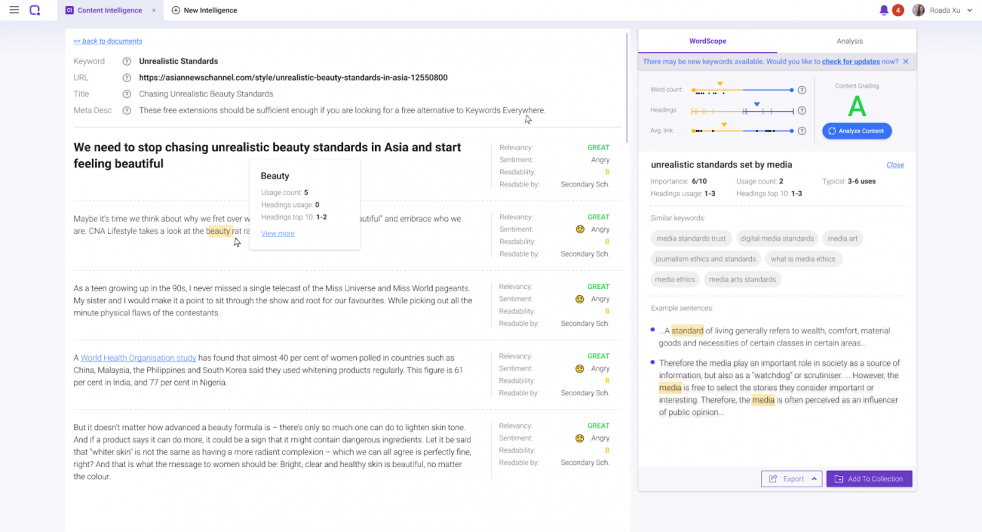Voice search SEO is now the most important topics in the search industry. Here are 7 best voice search practices to follow when it comes to optimizing your content.
Are you prepared for Voice Search SEO in 2021?
The world is experiencing some changes as voice technology gains traction at high speed. Voice search is more accessible than loading your preferred search engine and typing a lengthy search query. From the smartphone in your pocket to the digital voice assistants you have installed in your home, car, or office.
It’s evident that voice technology is becoming a bigger part of our daily lives. The covid -19 pandemic and the subsequent fear of touch have resulted in more people using voice-activated systems like Google Assistant, Siri, and Amazon Alexa.
As voice search revolutionizes the search process, it has become a crucial component of SEO.
What is Voice Search SEO?

Most of you have tried out voice recognition technology in one form or another. From asking Alexa about the weather today or asking Siri for the latest news, voice search offers the ultimate convenience to prompt a question or command.
To get a bit technical, voice search utilizes algorithms that process natural language and voice recognition technology to understand and decode your search query to get a matching answer on the web. Search engines have to understand the intention of your voice search and determine the available content.

They then have to match this intention of your search with the most relevant and high-quality results. Voice search SEO includes the techniques you use to optimize your website’s content, keywords, metadata, and data structure such that it ranks better when a search engine user asks a question.
Voice search SEO focuses on people’s natural language to provide the best search results. As voice search resources grow, it’s important to pay attention to voice search ranking factors to improve your website’s visibility on search engine result pages.
How Voice Search is Transforming SEO and Why it’s Important
Currently, the bulk of SEO entails typing-oriented keywords. You create and optimize your content based on the keywords people type in search engines. There are some ways in which voice search is changing traditional SEO.
The target keywords are longer, certain, and more detailed. With voice search, the content will have a more conversational language and be written in answer form. But most importantly, for web users, the content will better satisfy user intent. This final aspect means search engines will give more weight to voice search, making it a crucial component of your overall SEO strategy.
Voice search SEO is important since more users will search via voice in the future. If you don’t start optimizing your content for voice, it can hinder the achievement of your overall SEO goals. The future of voice search is not far away, and the statistics support this notion.
We’re slowly going from typing this:

To doing a voice search like this:
Google reported that 27 percent of web users are using voice search on their mobile devices. This proliferation and adoption of voice search will only increase as it improves the overall user experience by reducing the effort while searching.
How to Optimize for Voice Search SEO
1. Focus on Conversational, Long-Tail Keywords
Voice search enables you to speak a keyword or phrase into your voice-enabled search engine instead of keying in the text as usual. It allows you to ask a query in a natural sentence rather than in a brief form.
In the case of voice search, a user will tend to inquire in a longer form, using natural language. For instance, let’s say a potential patient is looking for skincare treatment in New York. They are most likely to type something like “cosmetic dermatologist New York.”
When using voice search, this user may speak to the question, “Where can I find an affordable cosmetic dermatology clinic in New York?” Both these search terms appear different. However, the terms are aimed at achieving the same goal.
The key phrases are more descriptive, precise, and in question form (interrogative) for voice search. Therefore, to optimize for voice search, you have to focus on conversational and interrogative long-tail keywords.
To get long-tail keywords in a fast and efficient manner, use BiQ Keyword Intelligence. Enter your targeted keyword in the search bar. Then, you will be presented with a list of related keywords with a mixture of short and long-tail keywords.

Click the ‘Advanced Filter’ to filter only the long-tail keywords. You may also choose the level of your long-tail keywords relatedness to your main keywords. And there you go!

If you are unsure which keyword to use, you can sort the keywords based on their value. The higher valued keyword means it can potentially bring more traffic to your website at a lower competition.
Go get those long-tail keywords in BiQ Keyword Intelligence today!
2. Implement Schema Markup
Content is still king when it comes to SEO. However, you need to structure your content so that you can provide search engines with quick insight into what the content of your website means. One of the best ways to do this for voice search SEO is to integrate schema markup into your content.

Schema markup, also known as Structured Data, is a code that helps search engines to understand the content of your website, what it means, and why it’s there. It also helps them crawl and display the content accordingly. By implementing schema markup, you are able to display improved search results that enhance user experience in the form of rich snippets.
You are able to specify certain aspects such as article data, review scores, price, events, or pictures. By implementing schema markup, you are communicating to search engines through semantics rather than keywords. This means helping them define the context around your content so that they can display useful results for the users.
It’s worth noting that schema markup doesn’t exactly improve your voice search rankings. What it does are display illustrated results that describe how relevant your content is to the search query. Relevance to voice search query satisfies user intent and establishes your website as an authority in its domain.
Schema markup became even more vital to voice search SEO with Google’s Speakable property. Speakable is a schema value that allows you to define part of your content as voice-friendly. When Google Assistant reads a “speakable” section, it sends the URL of the source to the user’s device through the app.
3. Build Content that Provides Useful Answers to Searchers
People don’t do voice search in the same way as a text search. They ask long and specific questions. An online study found that question keyphrases have grown 61% over the past five years.
As such, it is important that you write your content in a manner that provides searchers with the answers they are looking for. For example, if a user asks, “How many calories does a tortilla have?” You will rank better for voice search if your content gives a candid answer and sounds more conversational.
Direct answers satisfy user intent. They also increase the chances of appearing in featured snippets. Also, ensure that you create in-depth content.
The point here is to create relevant and useful content that readers would enjoy. So when you do begin writing your draft, make sure it’s SEO-friendly from the start.
BiQ Content Intelligence provides you with the best content-driven strategies which are SEO-friendly. While you write in the block editor, you will also be getting interactive writing tips to aid you.

You will be able to see BiQ’s Content Intelligence real-time text editor that’ll show you your “content grade”, and keywords count that tells how relevant your article is. You’ll also quickly see if you’ve included enough keyword density.
If your content isn’t A yet, you can make the necessary edits to take it there. But it’s important to note that an A content grade does not represent that your article “will rank number one on Google”.
This is a great recipe for success in voice search.
Before we move on, here are some voice search best practices with regards to useful content:
- Use plenty of subheadings to dive deeper into subjects.
- Note down the questions you want to answer with your content, then use the questions as guiding points.
- Focus on content segments that provide extensive information
4. Go Mobile and Go Local
You won’t carry your desktop or laptop to the bathroom, would you? Today, people carry their mobile devices virtually everywhere and conduct most of their online activities via mobile.
Every smartphone today comes with a built-in voice-activated assistant, meaning we increasingly use voice search everywhere. Since users conduct nearly all voice searches with their smartphones, you should make mobile optimization a priority. Below are some things that you can do for mobile optimization:
- Use AMP to optimize your mobile site pages.
- Implement best practices to ensure that your website is responsive
- Check the speed of your mobile site(you can use a tool such as GTMetrix) and improve it.
- Ensure that your content is readable on mobile devices
- Test your website using Google’s mobile-friendly test tool
Going mobile is one of the best things you can do to improve your voice search rankings and drive traffic to your site. To check if your site is working fine, use Google’s mobile-friendly test tool to get accurate results on what you should be fixing if any.

It also helps to revamp your SEO to target local searches. A significant percentage of Internet users use voice search to find local businesses. Follow the standard local SEO best practices to optimize your website for local search.

Also, ensure that you create location pages running alongside the Google My Business page. Your Google My Business page should accommodate your phone number, address, and business hours.
Let’s say you operate a bakery and a customer in your area triggers a voice search for “show me where I can get pastries near me.” If you optimized for local search, then they would be able to find your business in an instant.
5. Work on Increasing Domain Authority
One of the challenges of search is finding the most accurate and relevant information for users. Search engines have to qualify and rank content to ensure the best results for consumers. In order to rank better, search engines have to identify your website as an authoritative online source.

When delivering voice search results, Google will opt for more authoritative domains. If your pages have high domain scores, they will perform better in voice searches. The domain score is a metric that determines the quality and authority of a web page).
Backlinko conducted a study to investigate the most important voice search ranking factors. Domain authority was among these factors, with the mean domain rating of a voice search result being 77%.
As such, you have to work on increasing your domain authority if you seek to rank high for voice search. Below are some of the best practices to increase your domain authority:
- Choose a domain name that’s relevant to your website.
- Become an authority in your niche
- Optimize your on-page content
- Produce linkable content
- Improve the structure of your internal links
- Ensure your website is mobile-friendly
- Remove bad and dead links.
- Increase your webpage loading speeds
6. Improve Content Readability
One of the basics of SEO is creating high-quality, readable content. However, many marketers tend to overlook this simple aspect. Content readability is very important for voice search.
Precise content at a standard reading level helps rank your content. A voice search study recommends a rating of 8 on the Flesch Kincaid Grade. You should aim to achieve this. Below are some voice search best practices to improve content readability:
- Use short and simple words
- Always define new or complex words
- Use short sentences and simple sentence structure
- Write in a conversational tone
- Use the right font and font size
- Use proper formatting that includes heading and subheading to segment your content
- Use transition words
- Use reading supplements such as images or graphs
- Use active sentences (as opposed to passive)
- Include humor and entertainment (within the right limits and contexts, of course!)
You may use BiQ Content Intelligence to check your readability level and see if they are at the optimal level.
The product has the exact metrics that are catered to boost your visibility. You’ll be able to see them when you switch over to the WordVector toggle and hit the analyze content button.

Readability is an indirect ranking factor because if your content is easy to read, your readers are sure to spend more time on your website.
There are other important metrics that you’ll get from analyzing your content on Content Intelligence such as – Sentiment, Word Count, Semantic Density, and Keyword Density.
7. Create Voice Search SEO FAQ Pages
The presence of FAQ pages will complement voice search perfectly. This is mainly due to the aforementioned rise in question keywords. Google also seeks to provide candid and concise answers to users.
FAQ pages check all of those boxes. In fact, voice search results are more likely to originate from FAQ pages than desktop results. The truth is FAQ pages can rank for thousands of different voice search phrases.
For instance, if you conduct a voice search for “how car insurance claims work,” you will find that Google pulls the answer from a FAQ page. Interestingly, if you conduct a voice search for “how home insurance claims work,” Google pulls the answer for the very same FAQ page.
FAQ sections add significant voice search SEO value. Go the extra step and include the correct schema markup to your FAQ pages to earn a featured snippet.
Conclusion
Overall, the use of voice technology is gearing up to have a significant impact on a web user’s journey. Voice search SEO is here to stay and is poised to be a major part of Internet search.
To some, it may seem futuristic to invest in voice search SEO. However, optimizing your website for better voice search results using the practices detailed above will position you ahead of the competition and bolster your overall SEO strategy.




